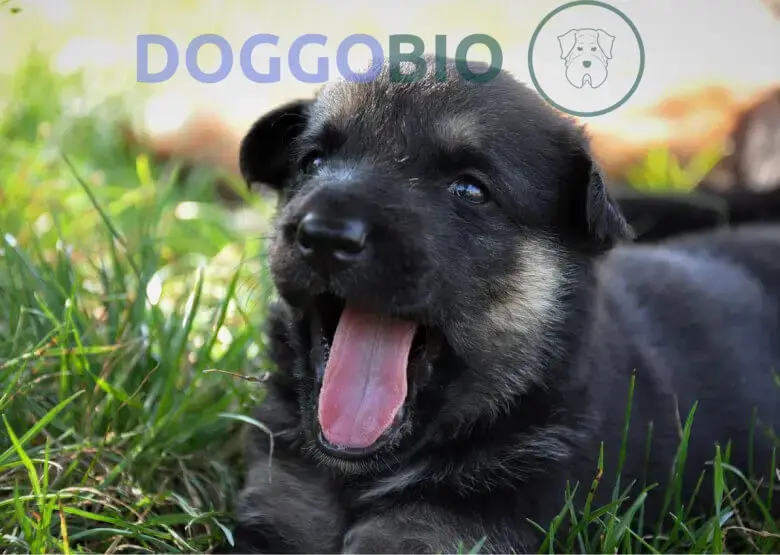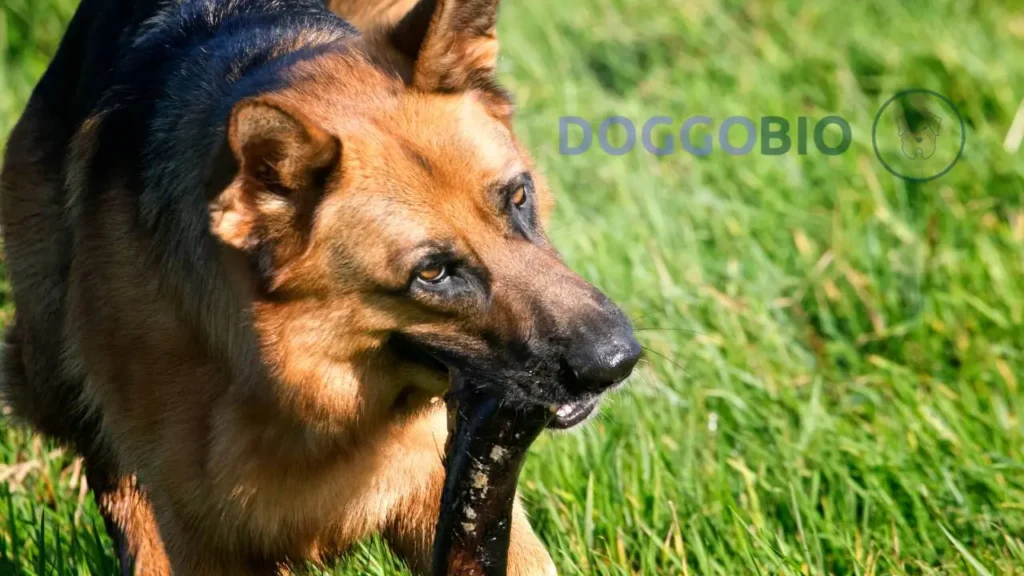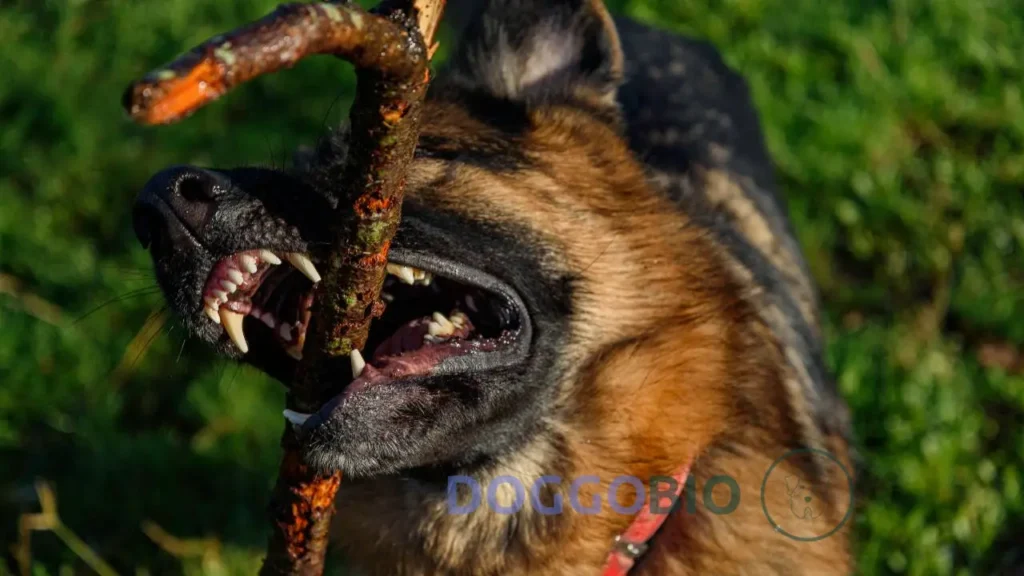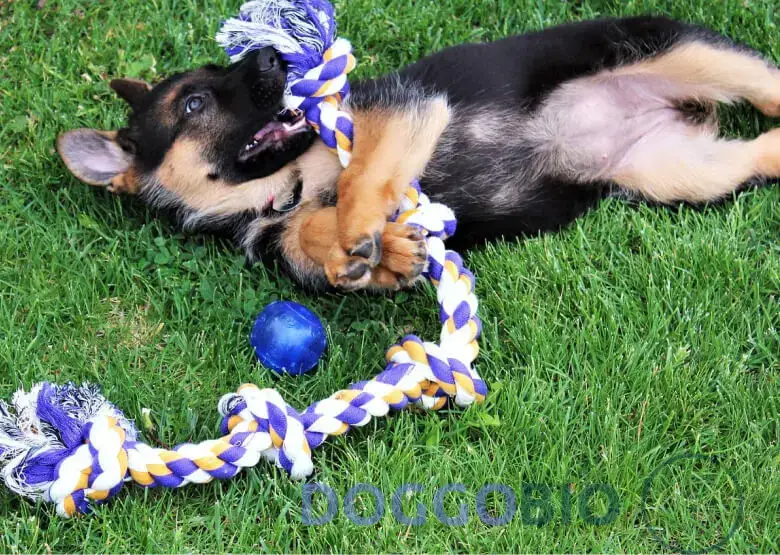Welcome to a comprehensive exploration of one of the most iconic and intelligent canine breeds – the German Shepherd and their fascinating dental anatomy. As faithful companions and versatile working dogs, German Shepherds have captured our hearts with their loyalty, strength, and keen senses. Beyond their admirable qualities, the health and maintenance of their teeth play a crucial role in ensuring their overall well-being.
In this discussion, we will delve into the intricacies of German Shepherd teeth, understanding their dental structure, standard oral health concerns, and the essential practices that contribute to a lifetime of strong, healthy smiles. Whether you’re a proud German Shepherd owner or a curious canine enthusiast, join us to uncover the secrets behind those powerful jaws and gleaming teeth.
How Many teeth does a German Shepherd have?
Puppies are born toothless, but as they grow, their baby teeth appear, vital for proper jaw development. By 1.5 months, a Shepherd pup has 14 teeth on each jaw. These temporary teeth include incisors, canines, and premolars.
Chewing teeth arrive around 6 months; if molars join baby teeth, they stay.28 milk teeth usually precede the transition, with deviations in number acceptable.
Adult Shepherds should have precisely 42 teeth, barring a minor premolar. Exceptions occur during protective training or vigorous play, potentially affecting teeth integrity.
German Shepherd Teething Symptoms
When German Shepherds start teething, they may show clear discomfort signals. Common symptoms include increased drooling, more chewing on objects, and occasional nibbling or biting, even involving people or furniture. Their gums may get sore as new teeth come in, making them sensitive and causing reluctance to eat solid food.
Here are the top ten signs your German Shepherd is teething:

1. Excessive drooling
Excessive drooling is a prominent teething sign in German Shepherds. Swollen gums from new teeth cause increased salivation.
While extra drool is average, if it persists, consult a vet. Soothe them with safe puppy toys or chews. Cold, tricky treats for teething can also help ease discomfort and reduce drooling.
2. Biting and Nipping During Teething
Teething German Shepherds might nip at people, objects, or even themselves to ease gum discomfort by training against this behavior using positive reinforcement and offering safe chew toys and treats.
When nipping occurs, calmly say “no” and provide an acceptable chew alternative. Consistency in training is vital, considering teething’s discomfort. Practice patience and understanding during this phase.
4. Decreased Appetite
If your pup’s appetite diminishes, it could be attributed to teething discomfort. The pressure of new teeth against their gums can lead to unease and reduced hunger.
To stimulate eating, offer soft foods, treats, or quickly chewable wet food or kibble. Frozen items like wet towels can also temporarily numb their gums.
If appetite loss persists, consult a vet for advice on managing teething discomfort and promoting healthy eating habits.
5. Heightened Irritability
Teething can trigger irritability in puppies during adulthood due to discomfort and dietary changes.
6. Unusual Pawing at Face and Mouth
If your pup starts pawing at its face and mouth, teething might be the cause. The pressure from new teeth can lead to discomfort.
7. Gum Redness in Teething
Red and swollen gums could signal teething in your pup. New teeth pushing through can cause this discomfort.
- For relief, offer frozen washcloths or towels to numb their gums temporarily.
- Monitor their chewing to prevent irritation or damage.
- Use a taste deterrent if needed.
- Be patient and gentle when touching their gums. If redness persists, consult a vet.
8. Gum Bleeding During Teething
If your pup experiences gum bleeding while teething, it might signal inadequate dental care. Regular brushing with a soft toothbrush and dog-safe toothpaste is crucial to maintain healthy teeth and gums during this phase. Include crunchy kibble in their diet to promote dental health.
If bleeding persists, consult a vet for guidance and potential recommendations for soothing teething discomfort while ensuring dental wellness.
How to Help Your Dog Through The Teething Process?

Guiding your German Shepherd through the teething process requires special attention to their well-being. To help ease their discomfort and promote a smoother transition, consider these steps:
- Provide teething-specific toys and treats
- Utilize cold items for temporary relief
- Observe behaviors closely.
- Prioritize regular teeth brushing
- Offer soft foods and treats
- Consult the vet for significant changes
- Ensure access to fresh water
- Opt for safe chew options
- Opt for puppy-formulated kibble
- Engage in regular exercise
Following these steps’ll enhance your German Shepherd’s comfort and well-being during the teething journey.
What order do teeth come in?
The progression of tooth transformation unfolds as follows:
- Initial Incisors: The emergence of incisors takes the lead. This phase generally extends between the ages of 3.5 to 5 months.
- Following Fangs: Next in line are the fangs, with an anticipated appearance between 5 to 7 months.
- Concurrent Molars: Coinciding with the fangs, chewing teeth, or molars, make their debut.
- Premolars Departure: As the process advances, premolars are typically shed between 6 to 8 months.
When do German Shepherds stop teething?

Teething generally commences in most German Shepherds around 3 to 4 months and usually persists until they reach 8 months old. Throughout this phase, the transition from baby to adult teeth occurs, with the former gradually making way for the latter.
By the time a German Shepherd reaches the age of 8 months, the complete set of 42 permanent teeth should have emerged, signifying the culmination of the teething journey.
When Do German Shepherds Stop Chewing?
German Shepherds typically reduce excessive chewing by 12-18 months after teething. However, they may continue chewing as a natural behavior for dental care, mental stimulation, and comfort. Chewing releases endorphins that soothe and relax dogs, contributing to their well-being.
How to Stop a German Shepherd From Chewing?
As your German Shepherd puppy goes through the teething phase, it’s essential to understand their instincts and discomfort. Chewing becomes a coping mechanism for them to alleviate the pain caused by the transition from baby to adult teeth. To create a more comfortable environment for your pup, consider the following steps:

1. Chew-Proof Your Space:
During the teething period, your puppy’s urge to chew intensifies. Safeguard your home by closing doors to rooms with valuable furniture or using foldable dog gates to restrict access. Placing stuffed animals out of their reach and covering furniture edges with thick blankets can also help protect your belongings.
2. Provide Cooling Treats:
Cold treats like frozen blueberries, carrots, and ice cubes can relieve your puppy’s inflamed gums. These treats offer a refreshing snack and help soothe sore areas, making teething more manageable.
3. Manage Energy Through Exercise:
German Shepherd puppies are full of energy, and regular exercise is essential to prevent destructive behavior. Taking them for walks and allowing playtime indoors and outdoors can help them burn off excess energy. Afterward, they’ll likely be more receptive to napping.
4. Entertainment to Distract:
Activities such as tug of war, fetch, and catch can keep your puppy entertained and distracted from teething discomfort. These interactive games offer mental stimulation and allow them to focus their energy positively.
5. Safe Chew Toy Selection:
Chew toys designed specifically for puppies are invaluable during teething. Opt for durable and safe toys for your pup to chew on. Be cautious about avoiding rawhide, which can pose a choking hazard and is unsuitable for dogs.
Implementing these strategies create a supportive environment for your German Shepherd puppy during its teething journey. Remember that teething is a temporary phase, and your patience and care will go a long way in ensuring their comfort and well-being.
Frequently Asked Questions
When do German Shepherd puppies lose their teeth?
German Shepherds typically start losing their baby teeth around 4-6 months old, completing the process by 8-10 months. Known as exfoliation, adult teeth develop and replace baby teeth in a
What is the worst time when German Shepherd is teething?
The most challenging teething phase for German Shepherds generally falls between 14-20 weeks, when they are acquiring their baby teeth, and again from 6-8 months, when the transition from baby teeth to adult teeth is underway.
During these intervals, puppies may exhibit heightened irritability and an inclination to chew on objects within reach. Their gum sensitivity is intensified during this time, underscoring the importance of offering suitable chew toys and treats to alleviate discomfort.
Can a Dog Continue Teething at 1 Year Old?
Yes, while less common, teething can persist beyond the typical 7-8 month range. Some dogs might still have baby teeth at one year of age. If you need more clarification about your pup’s dental situation, consulting your veterinarian is the best course to ensure their oral health.
How Many teeth does a blue merle German Shepherd have?
A blue merle German Shepherd, like any other German Shepherd, typically has 42 teeth when they are fully developed. These teeth include incisors, canines, premolars, and molars. Dogs have 20 deciduous (baby) teeth that are replaced by 22 adult teeth as they grow. It’s important to provide proper dental care and regular check-ups for your dog to ensure their dental health.
Do Australian Shepherds Shed a lot?
Yes, Australian Shepherds, or Aussies, shed a lot due to their double coat. Regular grooming, including brushing, is crucial to manage their shedding and keep their coat healthy.
Are Australian Shepherds Good With Kids?
Yes, Australian Shepherds are often good with kids, but their suitability as family pets can depend on various factors, including the individual dog’s temperament, socialization, and training
Conclusion
In conclusion, maintaining the dental health of German Shepherds is vital for their overall vitality and happiness. Regular dental care, attentive monitoring, and prompt intervention, when needed, can ensure their solid teeth and comfortable lives.
By prioritizing their oral well-being, we honor our duty as responsible caregivers and enable these exceptional dogs to continue gracing our lives with their boundless energy and companionship.

Pingback: Are Australian Shepherds Good With Kids? A Special Bond 2024
Pingback: Blue Merle Australian Shepherd: Majestic Beauty & Charm 2024